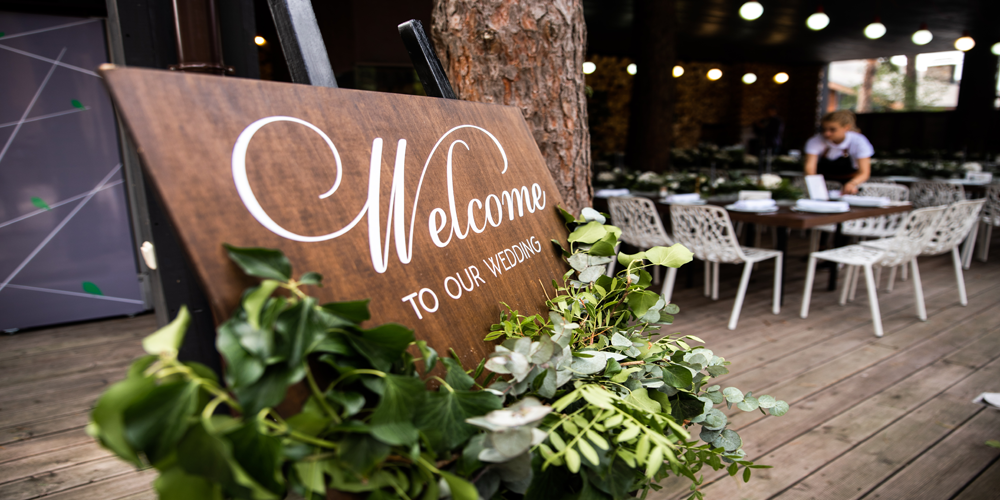Planning Your Wedding Reception: A Comprehensive Guide
Your wedding reception is more than just a party, it’s a celebration of love, a gathering of family and friends, and a momentous occasion that creates lifelong memories. Planning a wedding reception can be a complex task, but with the right approach and careful consideration, it can also be an enjoyable and rewarding experience. Here’s a guide to help you plan the perfect wedding reception.
1. Establish Your Vision
Before diving into the logistics, take some time to visualize your ideal reception. Discuss with your partner the overall theme and vibe you want for your celebration. Do you envision a formal black-tie affair, a rustic countryside gathering, or a chic urban soirée? Your vision will guide every subsequent decision, from the venue to the décor.
2. Set a Budget
Budgeting is a crucial step in planning any wedding event. Determine how much you’re willing to spend on the reception, keeping in mind the overall budget for your wedding. Allocate portions of the budget to different aspects of the reception, such as the venue, catering, entertainment, décor, and other essential elements. This will help you prioritize spending and avoid overspending in one area at the expense of another.
3. Choose the Perfect Venue
The venue sets the stage for your reception. Consider the following factors when selecting your venue:
- Capacity: Ensure the venue can comfortably accommodate your guest list.
- Location: Choose a location that is convenient for most guests and has ample parking or transportation options.
- Style: Select a venue that matches your vision, whether it’s a grand ballroom, a cozy barn, a chic restaurant, or a scenic outdoor space.
- Amenities: Check what the venue provides, such as tables, chairs, linens, and sound systems. Also, inquire about any restrictions or additional fees.
4. Create a Detailed Timeline
A well-structured timeline helps ensure the reception flows smoothly. Key elements to include are:
- Cocktail Hour: Typically lasts 1-2 hours, allowing guests to mingle and enjoy drinks and appetizers while you take photos.
- Grand Entrance: Plan a memorable entrance for the newlyweds, which can be accompanied by music and announcements.
- Dinner: Allocate time for serving the meal, whether it’s a plated dinner, buffet, or family-style service.
- Toasts: Schedule time for speeches from the best man, maid of honor, and other close family members or friends.
- First Dance: Plan your first dance as a married couple, followed by dances with parents and the wedding party.
- Cake Cutting: Include a moment for cutting the cake, which can also serve as a signal for dessert service.
- Dancing and Entertainment: Allow plenty of time for dancing, live music, or other entertainment you have planned.
- Send-Off: Conclude with a grand exit or farewell gesture, such as a sparkler send-off or confetti shower.
5. Select a Caterer and Menu
Food and drink are central to any reception. When choosing a caterer, consider the following:
- Tasting: Arrange a tasting session to sample dishes and ensure they meet your expectations.
- Variety: Offer a diverse menu that caters to different dietary preferences, including vegetarian, vegan, gluten-free, and other special diets.
- Presentation: Discuss how the food will be presented and served, whether it’s a formal plated meal, a buffet, or food stations.
- Bar Service: Decide on the type of bar you’ll have—open bar, cash bar, or limited bar—and the selection of beverages to be served.
6. Plan the Décor
Décor sets the ambiance for your reception. Key elements to consider include:
- Centerpieces: Choose floral or non-floral centerpieces that complement your theme and color scheme.
- Table Settings: Select linens, china, glassware, and flatware that enhance the overall aesthetic.
- Lighting: Use lighting to create mood and focus, from romantic string lights and candles to dramatic uplighting and spotlights.
- Personal Touches: Incorporate personal elements such as custom signage, photos, or themed props that reflect your personalities and love story.
7. Hire Entertainment
Entertainment keeps your guests engaged and ensures a lively atmosphere. Options include:
- DJ or Band: Decide whether you prefer a live band or a DJ to provide music. Ensure they can play a mix of genres to suit all ages and preferences.
- Live Performances: Consider adding live performers such as dancers, musicians, or even a magician to surprise and delight your guests.
- Interactive Elements: Photo booths, games, and other interactive stations can add a fun element to your reception.
8. Coordinate with Vendors
Effective communication with vendors is crucial. Confirm all details in writing, including:
- Contracts: Ensure all agreements are clearly stated in contracts, covering services, pricing, timelines, and any contingencies.
- Contacts: Have a list of key contacts for each vendor and establish a point of contact for the day-of coordination.
- Site Visits: Arrange site visits with vendors, particularly for catering, décor, and entertainment, to ensure everyone is familiar with the venue layout and logistics.
9. Arrange Transportation
Transportation for you and your guests should be well-organized. Consider:
- Bridal Party: Arrange transportation for the bridal party to and from the reception.
- Guest Shuttles: Provide shuttle services for guests if the venue is remote or if parking is limited.
- Send-Off Car: Plan for a special getaway car for the newlyweds, such as a classic car, limousine, or even a horse-drawn carriage.
10. Manage RSVPs and Seating
Tracking RSVPs and planning seating arrangements is a detailed task. Tools and tips include:
- RSVP Tracking: Use wedding websites or RSVP management apps to keep track of responses and dietary preferences.
- Seating Chart: Create a seating chart that places guests in comfortable groupings. Use place cards or escort cards to guide guests to their seats.
- Special Needs: Accommodate any special needs or requests from guests, such as accessibility requirements or specific dietary restrictions.
11. Plan for Contingencies
Weddings can be unpredictable, so it’s wise to have contingency plans:
- Weather: For outdoor receptions, have a backup plan in case of bad weather, such as tents or an indoor alternative.
- Health and Safety: Ensure the venue complies with current health and safety guidelines. Have hand sanitizers, masks, and first aid supplies on hand.
- Emergency Kit: Prepare an emergency kit with essentials like a sewing kit, stain remover, pain relievers, and other items to address minor issues that may arise.
12. Personalise the Experience
Adding personal touches makes your reception unique and memorable. Consider:
- Custom Favours: Give guests personalised favours that reflect your tastes or the theme of your wedding.
- Guest Book Alternatives: Create a unique guest book, such as a photo book, message board, or even a video booth for guests to leave messages.
- Thank You Notes: Send personalised thank-you notes to guests after the wedding to express your gratitude for their presence and gifts.
13. Delegate Responsibilities
On the day of the wedding, you’ll want to focus on enjoying the moment. Delegate responsibilities to trusted individuals:
- Day-of Coordinator: If your budget allows, hire a day-of coordinator to manage the logistics and handle any issues that arise.
- Bridal Party: Assign tasks to bridesmaids and groomsmen, such as managing the guest book, distributing favors, or helping with the send-off.
- Family Members: Involve family members in specific tasks, ensuring they feel included while also alleviating some of your responsibilities.
14. Capture the Memories
Photography and videography are essential to preserving the memories of your reception. Tips for capturing the best moments include:
- Professional Photographers: Hire experienced photographers and videographers who understand your vision and style.
- Shot List: Provide a list of must-have shots to ensure all important moments and people are captured.
- Candid Moments: Encourage the photographers to capture candid moments that reflect the genuine emotions and interactions of the day.
15. Enjoy the Process
Finally, remember that planning your wedding reception should be a joyful experience. While it can be stressful at times, try to enjoy the process and savor each step along the way. Involve your partner, family, and friends in the planning to share the excitement and create lasting memories.
Planning Your Wedding Reception
Planning a wedding reception is a multifaceted task that requires careful thought and coordination. By establishing a clear vision, setting a budget, choosing the right venue, creating a detailed timeline, selecting the perfect menu, and personalizing the event, you can create a memorable celebration that reflects your unique love story.
Remember to communicate effectively with vendors, manage RSVPs and seating, plan for contingencies, and capture the memories through photography and videography. Most importantly, enjoy the journey of planning your special day, and relish the moments of joy and celebration with your loved ones.











